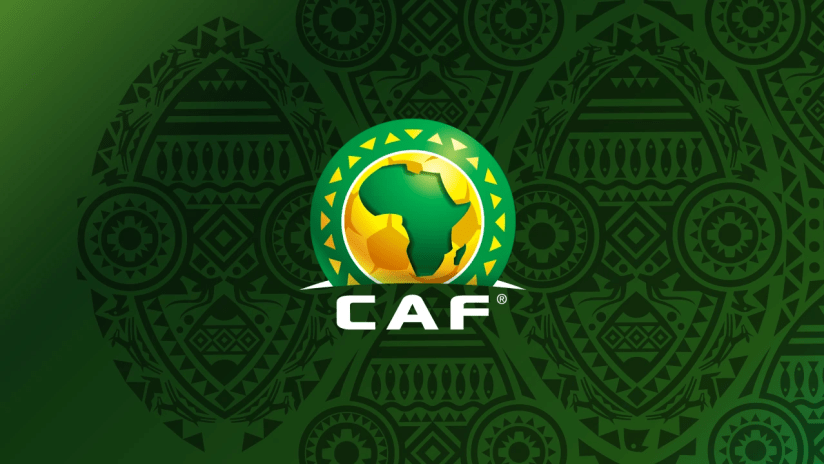The Confederation of African Football (CAF) is expected to be debt-free next year, thanks to enhanced governance under President Patrice Motsepe, according to Secretary General Veron Mosengo-Omba.
Mosengo-Omba, who was appointed deputy shortly after Motsepe became president in 2021, noted that CAF’s debt stood at approximately $40 million (£31 million) at the time.
Since then, this amount has been reduced by more than half, and it is anticipated that the debt will decrease even further when CAF’s financial accounts are revealed later this year.
“I think we will present a [deficit] figure to the Caf congress of less than $12m (£9.3m),” Mosengo-Omba told BBC Sport Africa.
“For the next fiscal year, [the debt] will be zero.”
The Caf financial year runs from the start of July to the end of June, with accounts traditionally presented to congress in October, meaning the organisation could be debt-free in just under 12 months’ time.
Mosengo-Omba, who hails from DR Congo but who also holds Swiss nationality, says that credit for the turnaround must go to his 62-year-old boss.
“Motsepe and his executive coming in was, for me, a gift for African football,” said the lawyer, who worked as Fifa’s chief member associations officer before joining Cairo-based Caf.
“In 2021, Caf was a toxic company – nobody trusted Caf. When Motsepe came, he put the principle of good governance and integrity in all levels of the organisation.
“This brings confidence to our partners.”
One of Africa’s wealthiest individuals, with an estimated net worth of $3.1 billion (£2.4 billion) according to Forbes, Patrice Motsepe succeeded the previous administration led by Madagascar’s Ahmad.
Ahmad, who was elected president in 2017 by ousting long-time CAF president Issa Hayatou, faced numerous scandals during his tenure. He was banned by FIFA for two years for violating its ethics codes, including charges of ‘misappropriation of funds,’ though he denies any wrongdoing.
The Hayatou administration claimed to have left over $100 million (£77.4 million) in reserves. However, under Ahmad, these funds dwindled significantly due to increased salaries, a significant reduction in CAF’s largest broadcast deal, and losses related to the COVID-19 pandemic.
Since Motsepe’s appointment, the number of sponsors for CAF’s flagship Africa Cup of Nations (AFCON) has increased from 10 for the 2021 tournament in Cameroon to 17 for the 2023 edition, held in January. The tournament attracted a global television audience of 1.1 billion viewers, with digital content reaching 2.2 billion people.
“In Cameroon we generated about $4-5 million (£3-4m) profit. In Ivory Coast the profit was more than $75 million (£58m). This shows we are [going] in a good direction and for Morocco, the next edition, I think [the profit] will be increased by 50%,” said Mosengo-Omba.
Much of this growth is attributed to increased sponsorship and television rights, with Secretary General Veron Mosengo-Omba expressing satisfaction that CAF generated $14 million (£10.8 million) by managing ticketing and hospitality in-house for the first time.
Despite recent speculation by Afcon-winning Ivory Coast coach Emerse Fae about the tournament potentially becoming a quadrennial event, Mosengo-Omba clarified that the governing body’s primary source of revenue comes from the biannual finals. The next Africa Cup of Nations is scheduled to start in December 2025.
“The periodicity of Afcon is not on the table,” he said. “We need the money from Afcon every two years to run football in Africa.”
Caf ‘not protecting crooks’
Mosengo-Omba also strongly defended CAF’s handling of corruption allegations against some of its senior officials, asserting that the organization is “not protecting crooks.”
Malian federation president Mamatou Toure is on trial for embezzling public funds in Mali, while Tunisian counterpart Wadie Jary faces corruption charges in Tunisia. Both men, who have denied the allegations and remain in prison, continue to serve on CAF’s executive committee.
When asked why they have not been suspended, Mosengo-Omba explained that CAF can only take action once the court cases in their respective countries are concluded.
“We suspend [people] provisionally if we are investigating the case ourselves,” he added.
“We respect the sovereignty of each country. When we have the verdict of the court, we’ll take a decision. Nobody is above the law in Caf – no-one.”
In May, Toure – a member of the Fifa council – reportedly dialled into a Fifa meeting from his prison cell in the Malian capital Bamako.
“If Messrs Toure and Jary committed crime according to the respective regulations of each country, take them to court,” the Swiss-Congolese said.
“How can Caf intervene in the situation?”
Morocco map row
Meanwhile, Mosengo-Omba stated that CAF will not take any action regarding the controversy over a map on RS Berkane’s jersey until the Court of Arbitration for Sport (CAS) rules on the matter.
The dispute arose after both legs of last season’s CAF Confederation Cup semi-final between Berkane and Algeria’s USM Alger were canceled due to the map on the Moroccan team’s jersey, which included an outline of Western Sahara. CAF’s disciplinary panel awarded Berkane two technical wins after USM Alger refused to play.
Western Sahara, annexed by Morocco in 1975, is a disputed territory. The Sahrawi Arab Democratic Republic, proclaimed by the Polisario Front in 1976, is a full member of the African Union and has declared sovereignty over the region.
CAF had approved the Berkane shirt at the start of the season, but both USM Alger and the Algerian Football Federation appealed to CAS following the semi-final incident.
“The Caf club committee believed, according to Caf regulations, there was no issue for this map,” Mosengo-Omba said. “The Cas decision [will] guide us how to improve our regulations.”
There are long-standing tensions between Algeria and Morocco, who share a nearly 2,000 km (1,242 miles) border that is currently closed, with Algeria severing diplomatic ties three years ago.
The issues have spilled into football, with the Moroccans pulling out of the 2022 African Nations Championship held in Algeria because of a travel row, and could arise again when Morocco hosts both the men’s and women’s Nations Cup tournaments next year.



